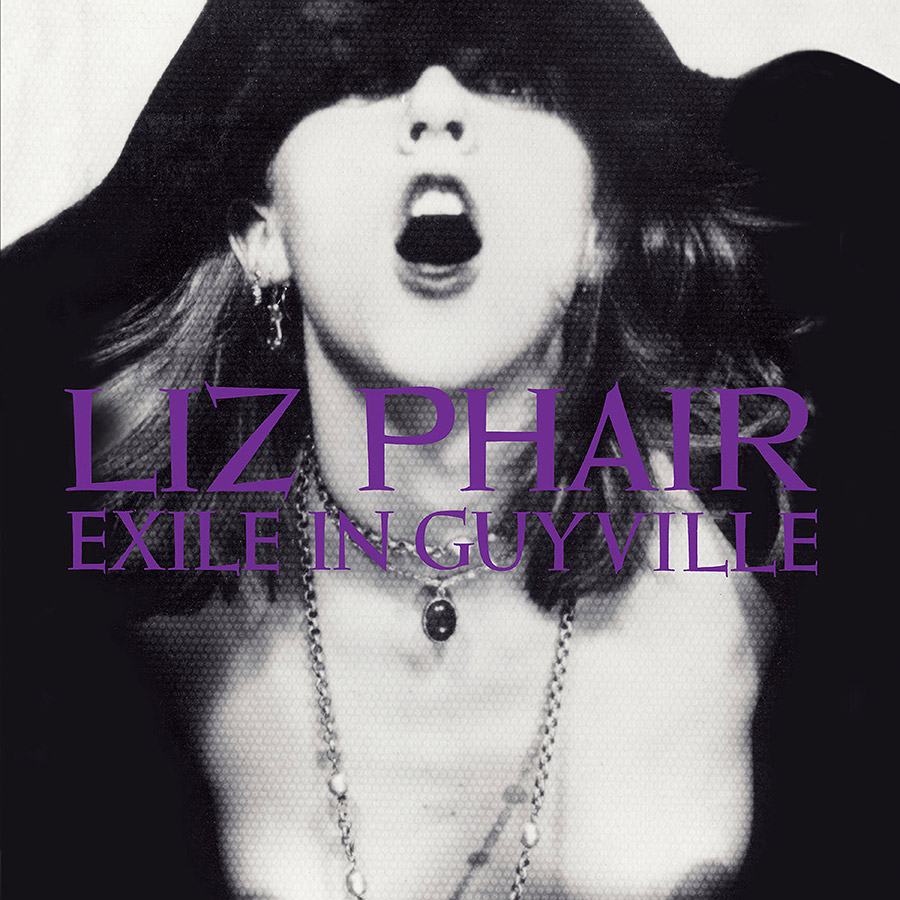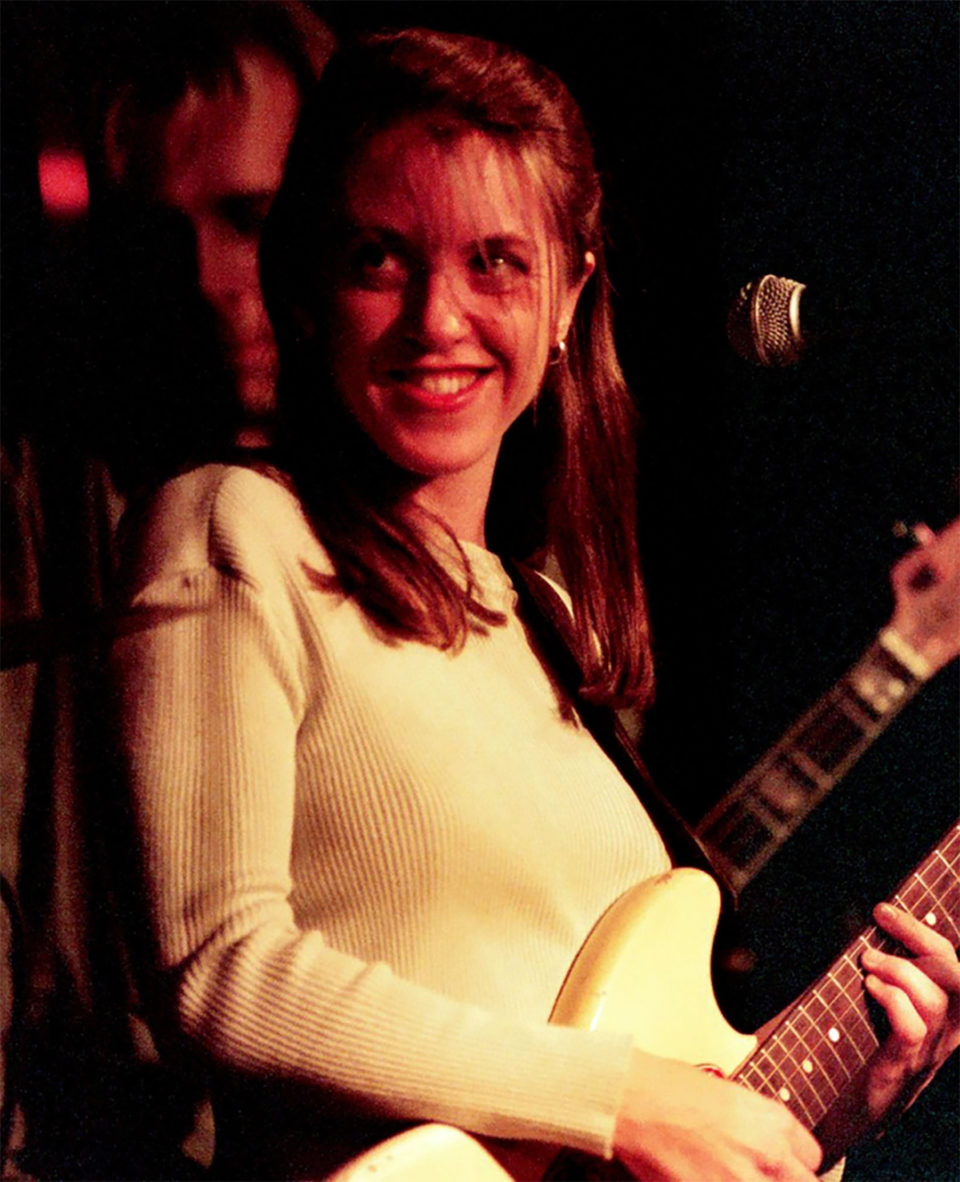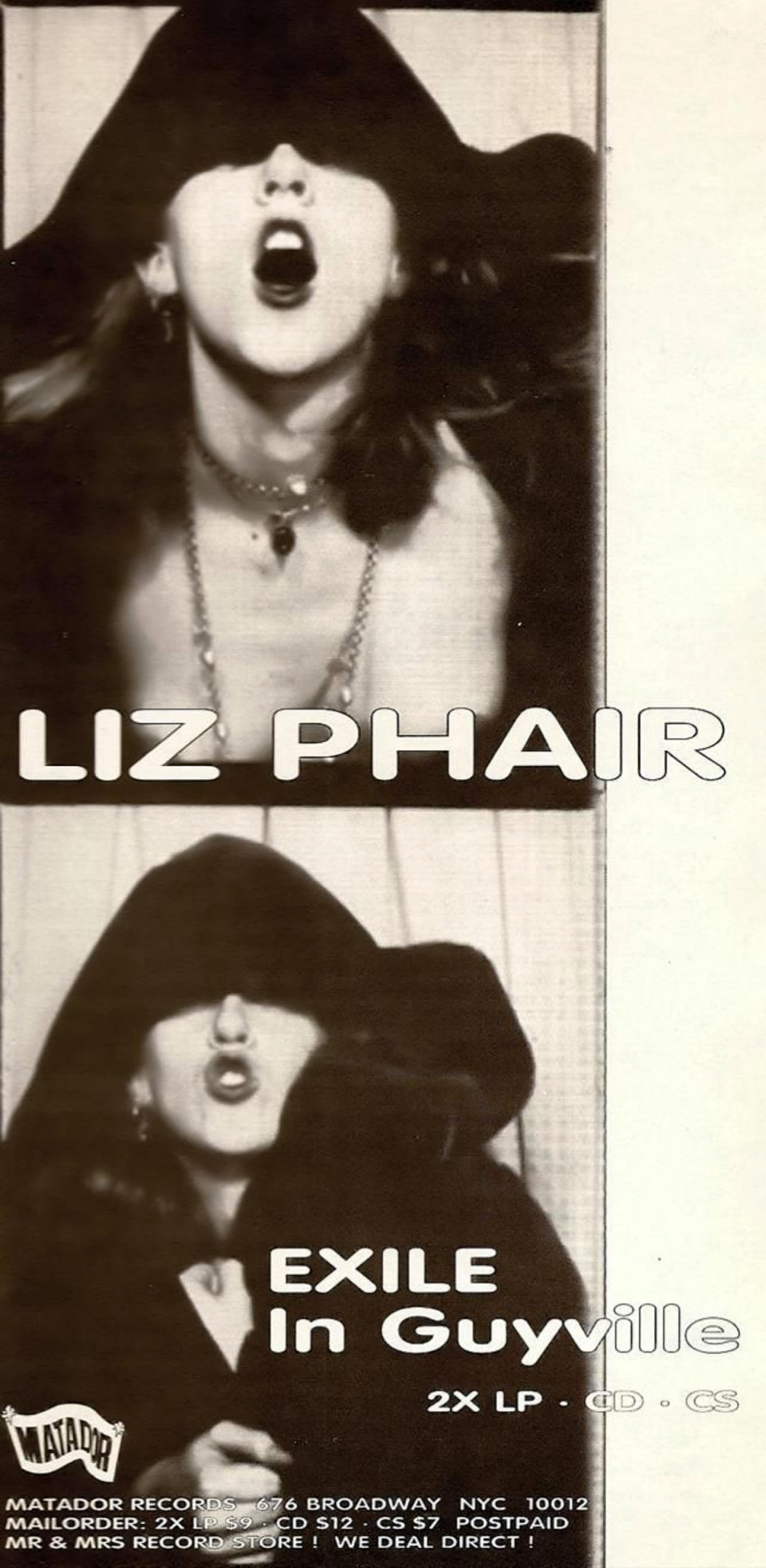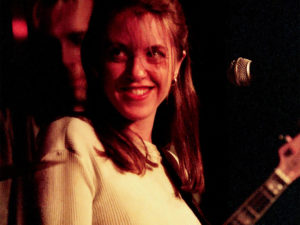By Ira Robbins
Trouser Press, June 22, 2023
Your album is being released as a double [vinyl]…
I don’t get a gatefold, but that’s just as well. It’s already a bit indulgent.
Can you talk about the record’s song-by-song correspondence to the Stones LP?
Oh honey, I have a three-inch stack of notes, I’m not saying that anyone else would get this without my explanation, but I absolutely did that. If anyone wants to take the time and sit down with my notes, I would [explain it], I said it because it’s true; and it mattered to me, but I think people would prefer to keep their own images. It makes for a richer structure, and people can tell there’s thought in it, but I don’t think anyone really cares.
Cloudy past in Matador bio…
That’s Johann [Kugelberg]; that’s not me. He called me and started rambling off these lies, I edited a little. The worst I do is omit, but I’m revoltingly honest. You can ask the guys in the studio: I’d been listening to Exile [on Main Street] non-stop for a month and a half before we recorded it: I know that album so damn fucking I well. I know exactly how it corresponds to mine.
I categorized all the Exile songs by what type of songs they were using weird post-modern descriptions, exaggerating them. Lyric content was the main pivot point in terms of me feeling like my songs had to be dealing with the same issue. A discourse was arising out of what I thought was a focus point in each song. I tried to do the female version.
Lyrics
The truth is there’s a huge difference between what clever Liz can tell you over the phone and what artist Liz does by herself. I just write them the way I write them because I have years and years of process training. I’ve been doing this forever, since well before I ever had any ability to articulate what I was doing. Sometimes I write songs that take a month, and I rewrite and I rewrite and I get very conscious about the words and I play a lot of wordplay games; sometimes they come out entirely conceived in one fell swoop. I don’t control it the way you might think.
Personnel on the album
I played guitar, Brad [Wood] played bass, drums and organ. [engineer] Casey Rice was the second most instrumental. He did some guitar leads on ‟Mesmerizing” and at the end of ‟Divorce Song,” he did an amazing cymbal crash in the middle of ‟Shatter”… Tutti Jackson walked in and I threw her behind a mic for some background vocals; same with the harmonica [grabbed a friend) I have the credits instrument by instrument, just like Exile did.
I come from doing my own four-track stuff, and my main [goal] was that this would be a rock album, but I didn’t want to be drowned out, I didn’t want to be mixed in. I wanted to be a strong thread through that stood out: guitar and vocals. I wanted it to be like what everyone tries to do with a solo artist: accompany them yet have it meld with what the artist is doing and at the same time leave them prominent. We all agreed on that, Brad was extremely keen to do it that way; that’s why my vocals are so high and clear,
“I’m basically trying to make the kind of stuff I want to hear on the radio.”
I’m really into pop music. I love hits, I love catchy hooks. It’s always a struggle because I write weird, dissonant chord structures sometimes; I’m always trying to counterbalance that with disgustingly catchy pop tunes, ’cause that’s the kind of music I love. I’m basically trying to make the kind of stuff I want to hear on the radio. I grew up listening to the radio: I’m not much of a record buyer. Basically, I’m after radio-playable, but I just want it to come around to my way of thinking.
Would you ever sell out?
That’s a moot point. I don’t think like that. All I think about is what sounds pop and awesome to me. I wouldn’t do anything on my record that I thought sounded stupid: but I already have a fairly mainstream ear, I love radio stuff, I would never have to make that decision, because in my mind I’m making what I think sounds good. People who don’t have a natural radio-type pop sensibility find themselves thinking along those terms but I don’t have to, because that’s how my ear is tuned.
When you started out, were you a bedroom guitar player?
Totally. I still am. If I didn’t have to play live ever again I wouldn’t. I’ve played live ten times now, maybe eleven. Solo.
All in the Chicago area?
I went down to Champaign-Urbana once. I thought we were going to Bloomington, Indiana; but it turned out to be Bloomington, Illinois, and the gig was cancelled.
I’m going to do some shows solo in New York because I made a commitment to Matador, but then it’s going to be with a band. Brad and I started practicing yesterday. I don’t want to come out just another band onstage, I want it to be Liz Phair, and to do that I have to be an extremely strong vocalist on top of his drums, which I have in me but my embarrassment makes that difficult. It’s horrifying to be in front of people singing your songs. It’s really embarrassing. I’m one of those people that despise getting up…I would talk in front of the UN; but to actually sing songs in front of four people is nerve-wracking. I’m getting better. When I took piano lessons as a child and had to give recitals it was equally horrifying. [But] I’m not really a shy person, per se.
Do you have role models as a guitarist?
I don’t know how to play anyone’s songs but mine. When I had a piano I refused to learn to read music and wrote songs. When I had a guitar, I just started plunking on my own, I didn’t model myself after anybody.
I got my first guitar in 7th grade, a Yamaha Classical. I still write a lot of songs on it.
I started making Girly Sound tapes in the spring of ’91. Before that I’d been screwing around in San Francisco, spending all of my savings for five months living in a loft and socializing like a motherfucker, stoned out of my mind all the time. It wasn’t working out, I wasn’t setting a job and I wasn’t being responsible, so I came home, lived at home and found myself needing an outlet. A friend of mine in SF — Chris Brokaw from Codeine/Come — convinced me to make him a tape of some of my songs. So I did and sent him a tape, I sent one to [my friend in] Kicking Giant and they just started dubbing and dubbing. It was like that Faberge Organic Shampoo commercial.
Favorite bands?
Urge Overkill. Antietam. Oddly enough, I’m informed in a lot of weird ways because I went out with a lot of guys who had extensive music collections and have a lot of friends who collect music and are very into it and know a great deal about Genesis and what has come from what band. I have, in very small segments, a great deal of knowledge, but on the whole I’m completely ignorant of [indie/mainstream]. It blurs in my mind. I behave very girlishly about it.
I consider myself a feminist.
Do you have qualms about using words like ‟cunt” in a song?
Not at all. You can use any language you want. I love words. I love mixing large and small, obscure and direct. What you do is what comes naturally to you. You exploit your strengths and weaknesses as they stand. That’s what songwriting’s about; how you explore your own art. That’s the self-discovery that comes from participating in the creative process.
I was supposed to be a visual artist. I spent many, many hours in art classes critiquing art history, deconstructing. I find the direct approach — do what comes naturally and hone it well — is the way to go.
Is the wooing by labels freaking you out?
It was, Badly. Over the winter I had a real crisis about it. I withdrew and freaked out and felt extremely threatened. Here are these things that everyone tells me I should be thrilled about and it feels like a gun pointed at my head. You want six years of my life doing what? It’s frightening. You’re stuck with the knowledge that you want to do something with yourself and they’re offering you the chance to do that and you could take it and run but at the same time you realize that you’re not there yet. You have to keep slugging it through, you’re not just gonna wake up one morning the butterfly.
I have seasonal affective disorder and I get real insecure and annoyed in the winter. It really pisses me off. I hate being here in the winter. Summer comes around and all of my confidence returns and I’m back in stride. I go crazy.
I’m doing another album and an EP with Matador, The EP will be Girly Sound: the album will be like a studio thing. It’s a one-off, so we’ll see who still wants me after that. After this whole out-of-nowhere wiz-kid label and you set back to being just a good pop artist, you see who wants you, see how they react to you then.
Personal relationships?
My real friends are mostly outside the music scene. They think it’s a gas that I’m doing it at all. It was awkward with my family at first. My parents were a little shocked, but I prepared them for about a year and a half to listen to the album. They just heard it for the first time the other night. My mother said something like: ‟Well, that was intense.” My lyrical content hasn’t screwed up anything; I’ve always been outspoken.
“Divorce Song”?
They’re all based on something in my life. That one is a mishmash of a couple of things. That is probably one of the less autobiographical ones. It’s divvied up between three different situations and two different people. I haven’t been divorced, no. I was using it metaphorically.
It’s in my nature to be way too analytical [about my work). It’s in my nature to do so, so I protect myself from thinking too much about it. I end what I can and stop when it freaks me out.









